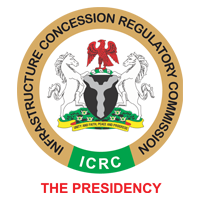Aviation in Nigeria set to fly high
On 11 September 2017, the President Buhari-led government of the Federal Republic of Nigeria, announced plans to grant operating concessions over four of the ten international airports in Nigeria – the Murtala Mohammed International Airport in Lagos State, Nnamdi Azikwe International Airport in Abuja, Port Harcourt International Airport in Rivers State and Aminu Kano International Airport in Kano State. Only a few days before (4 September), the National Council on Privatisation, under the chairmanship of the Vice President of Nigeria, Professor Yemi Osinbajo SAN had approved the privatisation of key government assets, including the Afam Power Plants, Lagos International Trade Fair Complex and Yola Electricity Distribution Company.
These developments are part of the Nigerian government’s on-going measures to improve infrastructure as well as encourage investment in Nigeria. It is also a move to cut down cost and reduce the government’s recurrent expenditure, which is said to account for about three-quarters of Nigeria’s budget. Speaking at the last conference of the Finance Correspondents Association of Nigeria, the acting Director General, Infrastructure Concession Regulatory Commission, Mr Chidi Izuwah put the total amount of funds required over the next six years to provide quality infrastructure in Nigeria at about $100 billion. For a country which until very recently was in recession, the government could do with a lot of help from the private sector.
The shift towards private investment in the building, operation and maintenance of infrastructure like airports mirrors the approach that has been adopted by governments in other jurisdictions. In more developed countries like the United Kingdom, Australia, Canada and Germany, amongst others, the private sector has for more than 20 years played a very significant role in public asset management. This has enabled the governments of these countries to reduce their borrowing while still allowing for heavy investment in infrastructure.
By granting concessions over the airports therefore, the Nigerian government should be able to reduce direct government borrowing as well as limit the government’s exposure to the on-going maintenance costs and risk of the airports. The concessions should also result in more modern and efficient airports in Nigeria, at little or no direct cost to the government. It should in addition generate new jobs, thus tackling the high unemployment and poverty rates in Nigeria.
For potential investors looking to acquire an interest in any of the airports up for concession, the stakes and expected returns are high. As far back as 2014, former chief economist of Goldman Sachs and Treasury Minister in the UK, Jim O’ Neil identified Nigeria as one of the four next big economies. Following the recession, which Nigeria recently pulled out of, the World Bank and the IMF have already projected that the Nigerian economy will experience growth even before the end of year 2017. Experts have also suggested that the next few years will witness an influx of foreign investment in Nigeria – this for obvious reasons will positively affect the aviation sector. For one, the Lagos and Abuja international airports are located in the commercial and political centres respectively of Nigeria, and so it is not out of place to expect a surge in the number of visitors and by implication, passengers using these two airports. There is therefore the potential for significant upside growth for any investment made in the airports.
There are of course a few concerns which the Nigerian government must take into consideration if the concession process is to be successful. First and foremost, the Nigerian government must learn from the pitfalls of its past concessions and ensure that the bidding processes for the proposed concession rights are open, fair and credible. Equally important is the need to ensure a proper regulatory oversight of the concessionaire – it must be held to the high standards to which it agreed to offer in the concession agreement. The government may also be required to regulate price – balancing the concessionaire’s desire to ensure high returns on their investment against the need to ensure that services at the airports remain reasonably priced for airlines, passengers and service providers. Finally, the government must be accountable – extra sums that will be saved as a result of the concessions must be used to solve other pressing issues.
All in all, the move to grant concessions over the four international airports is potentially a step in the right direction for Nigeria, especially if properly executed and regulated.
https://www.jdsupra.com/legalnews/aviation-in-nigeria-set-to-fly-high-86190/



